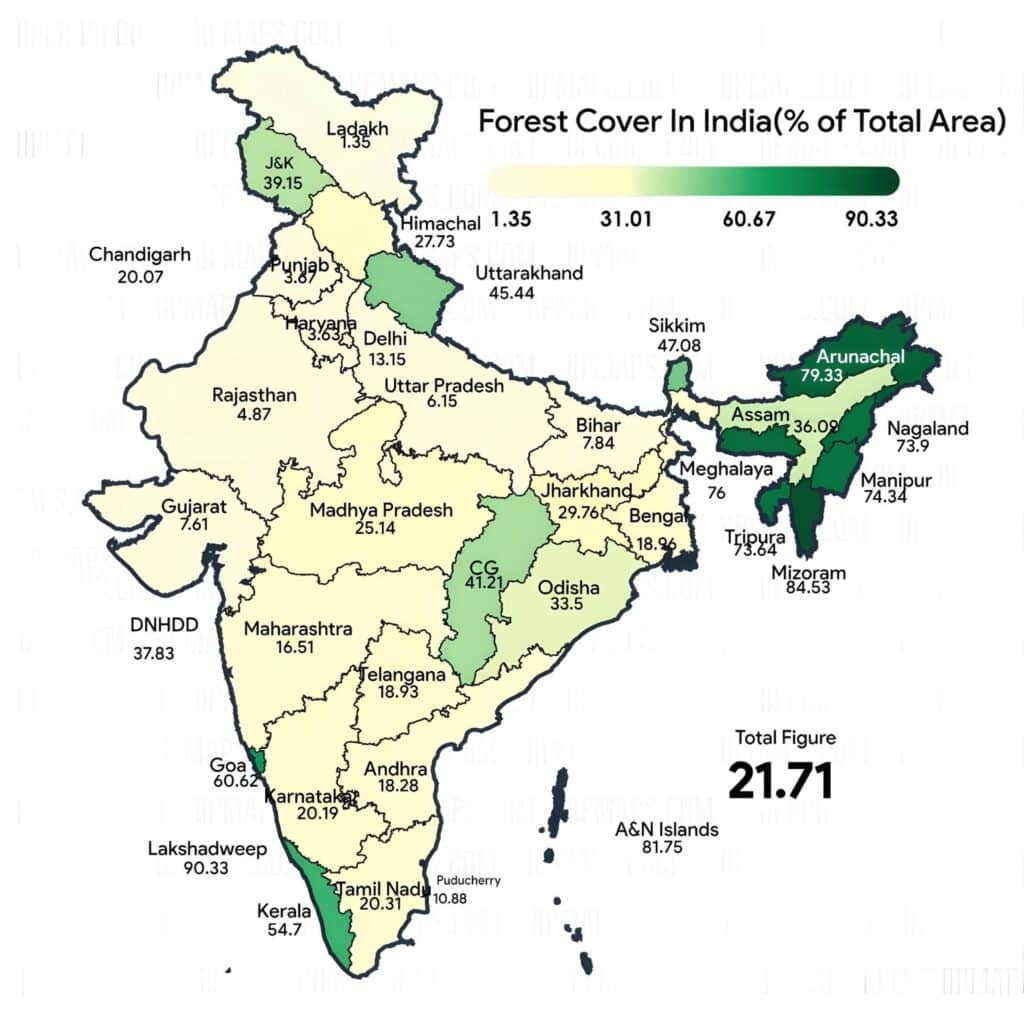India has introduced a “One Nation / One Pass” National Transit Pass System, allowing for the seamless transit of timber, bamboo and forest products across the country.
The move is part of a “Wood Is Good: Grow More, Use More” initiative – with India looking to boost its domestic capacity for forest products and provide “a unified online model for tree growers and farmers involved in agroforestry across the country,” according to Indian Environmental Secretary, Leenda Nandan.
It comes as the Modi government launched a new “national” forest certification scheme last week, in a move that will “shake up the private forest certification model” dominated by PEFC and FSC – critical to connect the country’s 146 million smallholders into global markets.
India is the world’s largest consumer of wood for residential construction, and according to the Indian Centre for Science and Environment, demand for timber stands at 63 million cubic metres – with 30 million cubic metres coming from domestic production and 33 million cubic metres from imports.
Along with China, it is the engine room for supply chains, with “about 70% of timber imported from southeast Asia and Africa,” according to Aadarsh Mohandas, Preferred by Nature’s Regional Director for South Asia and “most of the timber imported uncertified, and of questionable quality.”
According to the WWF – which in 2021 used satellite imagery and trade flow analysis – India is the third-largest contributor to tropical deforestation.
However, almost all tropical deforestation is linked to raw sawlogs imported into the country and processed, manufactured and sold into domestic and overseas markets.
Launched by Shri Bhupender Yadav, the Indian Minister for Environment, Forest and Climate Change, Labour and Employment, the new system “will serve as a bridge between the rural and urban economy” and help reduce the country’s reliance on imports.
Under the system, QR-coded permits will be issued for cargo travelling across 25 Indian states to “verify the validity of the permits and allow seamless transit”, according to an Indian government official.
Significantly, this will also help India regulate domestic deforestation – responsible for about 3.5% of forest loss – and intertwine with the new Trees Outside Forest and Indian Forest and Wood Certification Scheme, which could help regulate timber imported into India and sold into local markets.
“These initiatives are geared towards tapping into the substantial potential of tree cultivation in and beyond forest landscapes, aligning with national goals of environmental conservation, ecological balance, and sustainability”, Ms Nandan said.

In September, Wood Central reported that demand for timber surged after the Modi government lifted a 27-year ban on using timber in public buildings in 2020. That decision was a complete U-Turn from the 1993 ban, with the Modi Government looking to afforestation and low-carbon materials to fuel its surging economy.
As reported in July, India is emerging as a leader in global afforestation. It has now set a target to restore 26 million hectares of forest land – targeting ambitious tree planting after a century of colonial rule that saw the country’s tree stocks fall thanks to agricultural conversion, urban development, and mining.
In the past, India has been critical of the private forest certification model, which it claims is prejudicial against operational landowners.
Of the country’s 80.9 million hectares of forest cover, over 25 million hectares belong to agroforestry land primarily owned by small landowners.
“Forest certification,” Minister Yadav said, “can address these challenges” if “all participants work together to create a sustainable future that is equitable, just, and resilient.”






